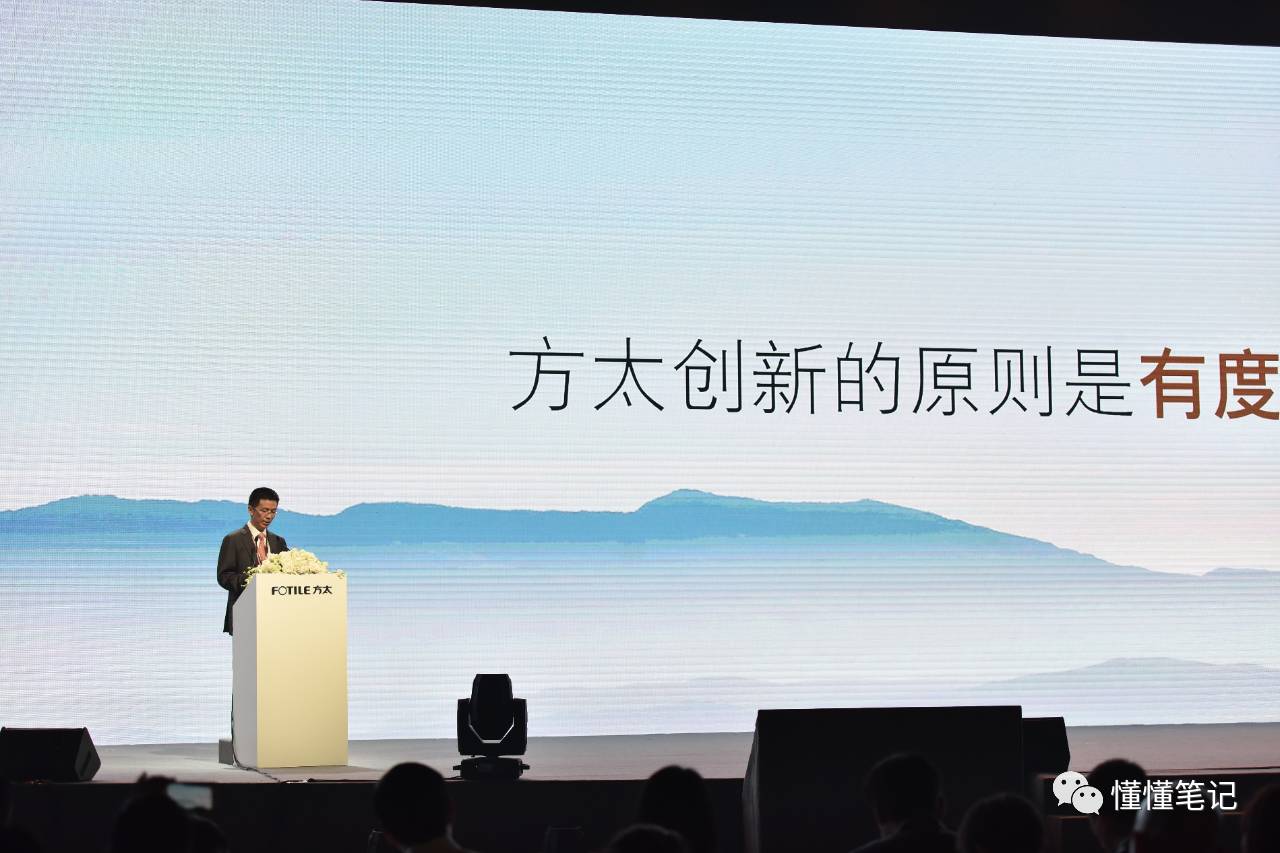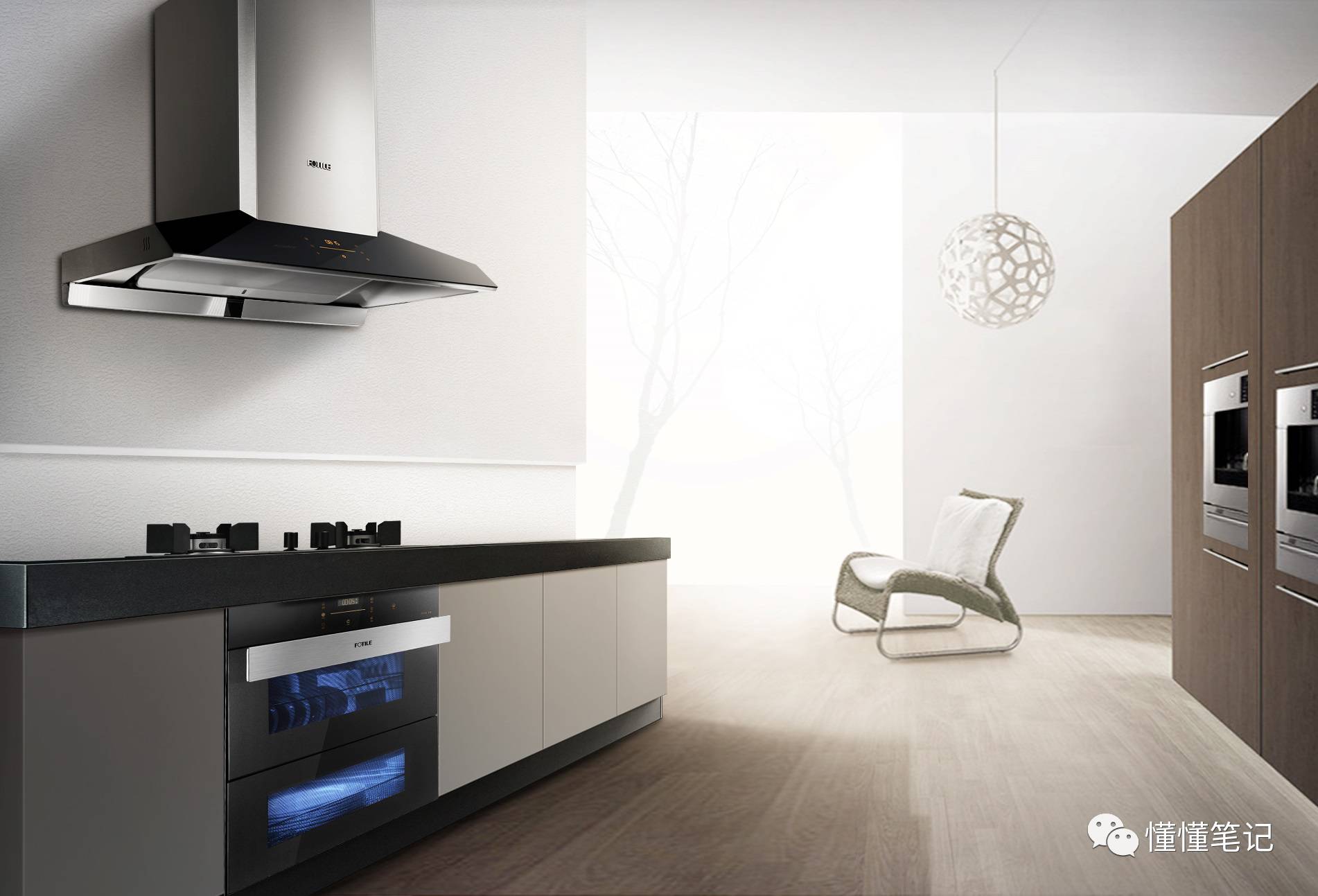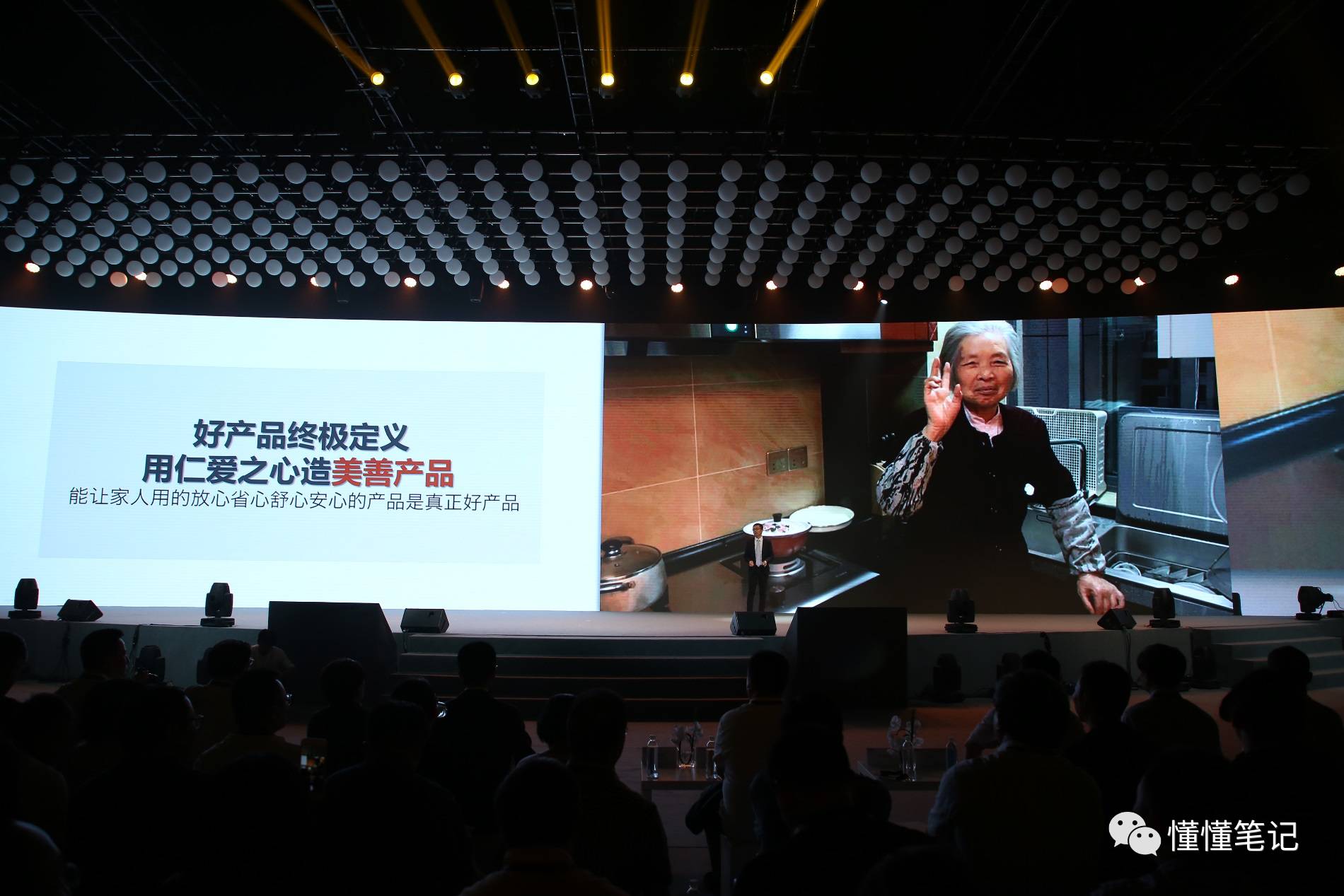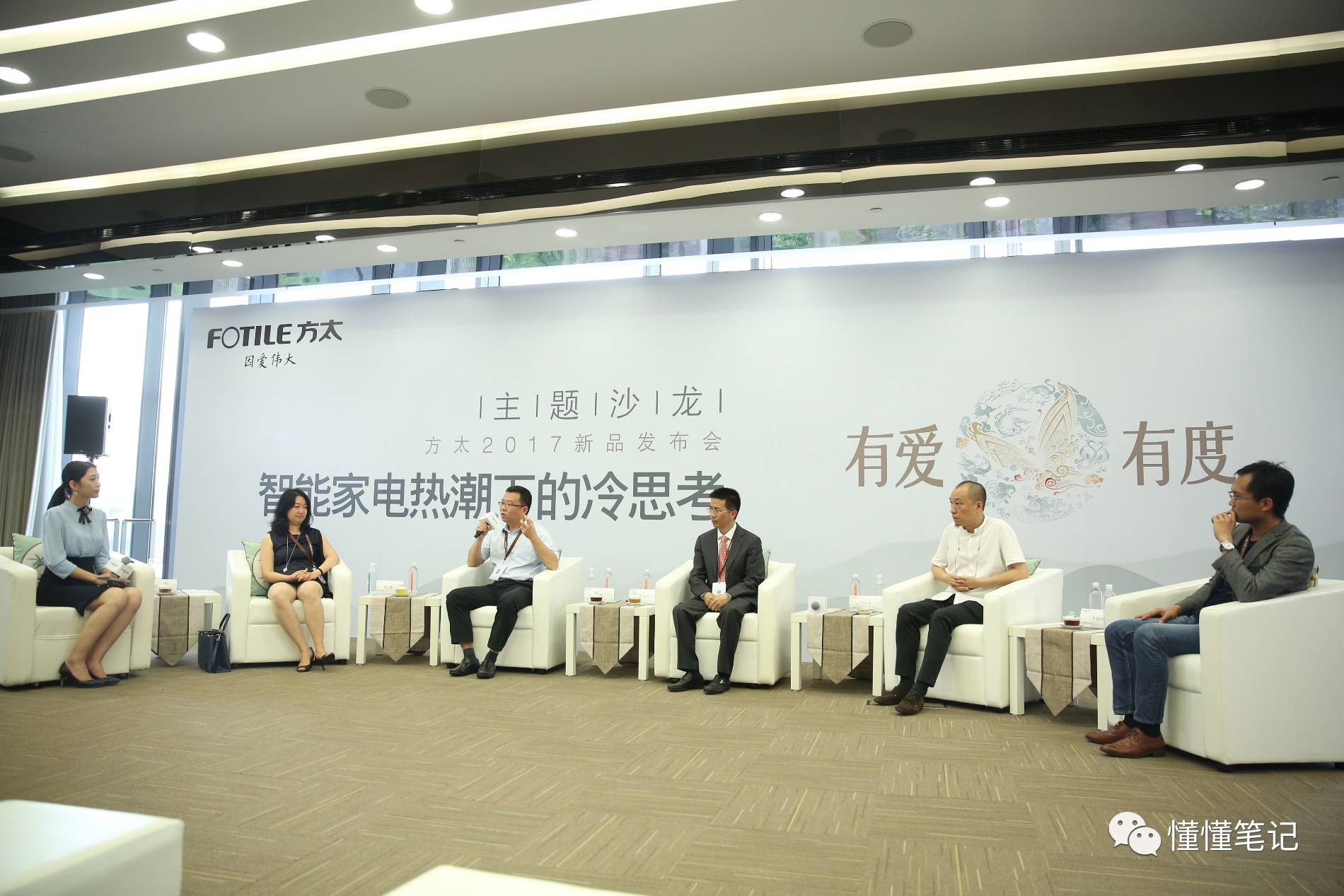
“As long as we start from a place of compassion, innovation will not go astray,” said Mao Zhongqun, Chairman and President of Fangtai Group, at the new product launch conference, prompting reflection among all attendees.
Can innovation really go astray?
The smart home sector is becoming one of the hottest trends today. According to ABI Research’s 2016 forecast report, the global smart home market is expected to reach $70 billion by 2018, while China’s smart home market is projected to exceed $20 billion by the same year, with a compound annual growth rate of over 50% in the next two years, indicating a period of growth for the smart home market.
Such a massive market opportunity has attracted the attention of internet companies, traditional appliance manufacturers, and other industry giants. However, in the rush towards smart home technology, most companies are chasing “smart” while neglecting the essence of “home.”
This year’s Fangtai new product launch was themed “With Love, With Boundaries,” and the flagship product, a range hood, significantly differs from mainstream smart home products on the market. It advocates for the application of smart kitchen technology to enhance the fundamental functions of kitchen appliances, helping users return to the kitchen and enjoy a more convenient and healthy cooking experience, rather than blindly following the current trend of appliance smartification.
“Returning to the essence” and “innovation with boundaries” are new theories proposed by Mao Zhongqun that encourage everyone to think critically amidst the trend.
Not Being ‘Kidnapped’ by Smart Technology: Fangtai’s New Products Return to the Essence of Kitchen Appliances

In the wave of smart home technology, both giants and startups have inadvertently fallen into a misconception: that smartification is paramount. Thus, we see many smart products that merely exist for the sake of being smart. Connecting appliances to the internet and adding an app seems to make them smart, but in practice, they can be more cumbersome than before, even challenging users’ intelligence.
For instance, I often encounter a dilemma: I travel frequently, and many nice hotels now have remote-controlled curtains. However, each hotel’s remote control panel is different, and some are quite complex. I once saw a curtain remote with 15 buttons, each labeled with tiny text explaining its function, which made me feel like I had a deficiency in intelligence.
“What users want is not just smart technology, but a better experience—more convenience, enjoyment, health, and safety,” Mao Zhongqun believes. Many smart appliances have designs that stray from the product’s core functions, overly emphasizing so-called smart features.
The product dubbed “the most advanced smart range hood in Fangtai’s history” surprisingly lacks “+ internet,” “+ mobile,” and “+ cloud” features, instead returning entirely to the essential functions of a range hood and the fundamental needs of users. Essentially, users need a range hood that can intelligently and effectively remove smoke, regardless of whether it is connected to the internet or has an app.
“This is a truly fully autonomous range hood,” Mao Zhongqun told me. Achieving the best smoke extraction effect with full autonomy involves some technical challenges, and the R&D team spent several years exploring this area, finally realizing it with this new product.
The new smart lift range hood employs Fangtai’s proprietary “smart butterfly wing suction technology,” which can automatically detect smoke levels, adjusting the height of the butterfly wing suction plate and the airflow accordingly, allowing the plate to intelligently rise and fall within an 8cm to 12cm range, truly achieving “wind follows smoke.” The AutoSuction intelligent extraction system has been upgraded due to the implementation of the “smart butterfly wing suction technology,” combined with stove linkage, kitchen air management, intelligent pressure boosting, and intelligent timing functions, providing users with a completely hands-free experience.
In other words, once users enter the kitchen and turn on the gas stove, they need not worry about anything else; they can simply enjoy the cooking process. The “fully autonomous” range hood will automatically adjust the power and distance for smoke extraction based on the smoke level, ensuring optimal extraction throughout the process.
“Networking,” “remote control,” and “data reading” are not what users need; they are merely means to achieve smart functionality. Fangtai’s fully autonomous system achieves the best smoke extraction effect, bypassing these so-called smart features and directly addressing users’ ultimate goals. This represents a return to the essence of user needs and the fundamental functions of the product. I believe that “fully autonomous” is actually the ultimate form of smart technology.
Currently, the smartification of many products stems from a manufacturer-centric perspective. In Mao Zhongqun’s view, “Innovation should be rooted in love, centered on the user, and designed from the user’s perspective to create better user experiences; otherwise, innovation will go astray.”
Smart, Not Stupid: Value Lies in Boundaries

In recent years, smart homes have become increasingly popular, but many products are designed merely for the sake of being smart, resulting in inconvenience for users, turning “smart” into “stupid.”
How can we avoid falling into misconceptions during the smartification process?
“The standard for smart appliances must be to provide valuable functions; value lies in boundaries,” Mao Zhongqun, influenced by traditional Chinese culture, asserts. A core principle of traditional Chinese culture is the “Doctrine of the Mean,” which emphasizes moderation—”neither excessive nor deficient,” “just right,” or as people often say, “with boundaries.” “Smart technology is merely a means to achieve a better user experience; we must not lose sight of the essence and innovate for the sake of innovation.”
This year’s series of new products from Fangtai embodies three layers of “boundaries”: a balanced relationship with users, integration with space, and harmony with nature.
First, let’s consider the balanced relationship with users. The essence of a range hood is to effectively remove smoke, allowing users to cook without disturbance. Appliances should not be the main focus in the kitchen; they should quietly fulfill the necessary functions. Mao Zhongqun believes that true smart kitchen appliances should minimize user interruptions, even avoiding reminders, as they can be disruptive. Thus, the guiding principle for this generation of products is “fully autonomous,” ensuring not only cleanliness but also quiet operation, taking user comfort into comprehensive consideration.
Integration with space means that appliances should not be designed as isolated products; the design should be integrated into the space, fully considering spatial conditions for better integration. For instance, most Chinese households have small kitchen spaces that cannot accommodate many appliances. Fangtai designs products with space in mind, allowing for more functions within limited space. For example, Fangtai has developed a steam microwave oven that combines the functions of a microwave and a steamer, achieving the capabilities of three products in one. Another example is Fangtai’s innovative three-in-one sink dishwasher, which integrates a dishwasher, fruit and vegetable purifier, and sink into one unit, freeing up kitchen space to the maximum extent.
Harmony with nature represents a higher level of consideration, stemming from respect for the natural world. Environmental sustainability is a deeper principle that all responsible companies consider when designing products. Fangtai takes care to reduce waste and pollution in product design. For instance, the new generation of the three-in-one sink dishwasher Q7 can identify the level of dirt on items placed inside, automatically adjusting the cleaning mode and duration, avoiding water waste that occurs with a single washing mode, making cleaning more efficient. It is worth noting that the first generation of sink dishwashers already uses less water than traditional hand washing. Additionally, Fangtai’s range hoods can achieve a grease separation rate of up to 98%, with oil emissions only one-fifth of those from ordinary range hoods and one-tenth of national standards. While many companies aim to meet national standards, Fangtai continuously innovates to minimize this metric, reflecting a respect for the natural world we depend on.
Renowned designer and founder of the Chinese original furniture brand “Banmu,” Lv Yongzhong, expressed deep appreciation for Fangtai’s new products: “Fangtai has released so many new products, each returning to the essential needs of people, which greatly reduces waste of social resources.”
In the face of the smart home trend, Mao Zhongqun presents a cool reflection on “innovation with boundaries.” To illustrate, he cites a serious issue in today’s society: gaming. Games are originally a normal consumer demand and have a good market. The essence of games is to enrich people’s lives, serving as a form of leisure and relaxation. However, many games are designed to make users addicted.
“So many children have problems due to gaming, causing distress for their parents. I believe innovation must have boundaries. The games you develop should not lead to excessive addiction, and if they do, you should have ways to prevent it. This is what innovation with boundaries means.” In Mao Zhongqun’s view, if game developers blindly pursue innovation, leading players—especially children without self-control—to become unwittingly addicted, it is harmful to users. “We will never allow our products to lead users into addiction.”
Staying True to Oneself: Mastering Skills and Upholding Principles

In the face of the industry’s wave of smartification, Fangtai’s courage to launch a smart appliance that is not connected to the internet, lacks cloud features, and has no app indeed requires some bravery.
“I strongly agree with Fangtai’s perspective on ‘innovation with boundaries and creating meaningful, valuable smart appliances,'” said Ge Fengliang, Deputy Director of the China Household Electrical Appliances Research Institute. “In recent years, the Chinese home appliance industry has continuously innovated under the wave of smartification, but some companies blindly follow others in pursuing interconnected innovation projects, forgetting the essence of their products, which has led to painful consequences for many companies.” In Ge Fengliang’s view, Fangtai has not been swayed by external trends over the years, consistently adhering to its boutique strategy, which is worth emulating for the entire industry.
How can one steadfastly “be oneself” amidst trends? Since 2004, Mao Zhongqun has engaged with traditional Chinese culture, applying its essence to his business operations, creating a modern Confucian management model, earning him the title of a modern “Confucian businessman.”
In 2000, he pursued an EMBA, enhancing his understanding of enterprise management. After completing the EMBA, Mao Zhongqun asked himself: What should I learn next? “Business schools teach Western management. China is rising, and traditional Chinese culture should be applied to modern enterprises in the future.” In 2004, he enrolled in a traditional Chinese culture class at Tsinghua and Peking University, thus forming an inseparable bond with traditional culture.
In Mao Zhongqun’s view, due to cultural differences between the East and West, the positioning of enterprises also differs. The global management systems of enterprises are rooted in the West, where the prevailing notion is that “enterprises should naturally pursue maximum profit.” However, from an Eastern cultural perspective, enterprises are not only economic organizations but also social organizations. “Modern Chinese society lacks extended families, and the form of enterprises has effectively replaced the traditional family structure. Many family issues that used to be resolved by extended families can now be addressed by enterprises.”
From my understanding, the management theories and methods learned in EMBA are on the level of “skills,” while the thoughts from traditional culture pertain to the level of “principles.” Mao Zhongqun’s profound understanding of traditional culture allows him to return to the source when considering issues, determining direction from the “principles” without deviating. This is why he can remain true to himself amidst trends, innovating from the user’s perspective rather than following the latest fads.
Finally, I want to say: If a company understands its “principles,” minor errors in “skills” can be adjusted without leading to major failures. However, if a company only possesses “skills” without “principles,” it lacks direction and can only be pushed by trends, leading to uncertain outcomes.

Notes from Dongdong
Dongdong Studio was established in 2016.
With a cool perspective, sharp commentary, and in-depth analysis, we help you understand the rapidly changing industry from a new angle.
Founder Dongdong participated in writing the bestsellers “WeChat Thinking” and “The Power of WeChat” in 2014 and 2015, respectively. From 2016 to 2017, he independently wrote “Notes from the Xiaomi Ecological Chain Battlefield.”
[Dongdong Notes] is a self-media platform across all platforms, with original content published on mainstream technology platforms such as WeChat public accounts, Baijiahao, Sina Chuangshiji, NetEase, Xueqiu, Penguin Account, Jiemian, Toutiao, Yidian Zixun, Blue Whale, UC Toutiao, Beijing Time, Huxiu, and TMT Post.

END
Recommended Previous Content

-
Regardless of who takes over, Yidao’s “slope up” still lacks momentum
-
Shared bicycles intensify their assault; cities are already gasping for breath
-
Ctrip and Ele.me confront Meituan: not about truth, just about interests
-
Boss Zhang, rather than the crowd waiting in line, I want to see you on the sales leaderboard
-
[Sketch of the Live Streaming Industry Part Four] ME Live: The Latecomer
-
[Sketch of the Live Streaming Industry Part Three] Self-branded IP fails to boost Panda Live; emotional entertainment still struggles to reverse the downturn
-
[Sketch of the Live Streaming Industry Part Two] Huajiao Live: The Efforts and Struggles of the Rich Second Generation
-
[Sketch of the Live Streaming Industry Part One] Inke: Rise, Decline, and Acquisition—The Lone Hero Reflects the Major Changes in the Live Streaming War

This account is a signed account of NetEase News and NetEase’s “Each Has Its Attitude” program.
Follow us on Weibo, Yidian Zixun, NetEase, and Xueqiu:
@Dongdong Notes